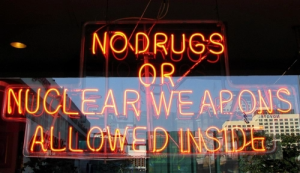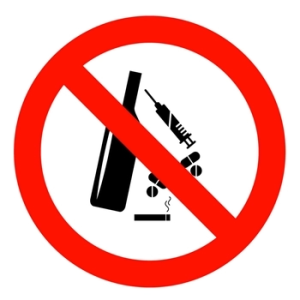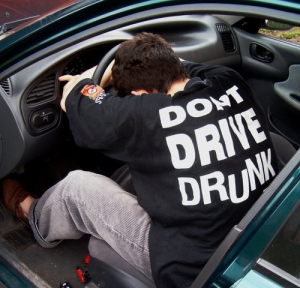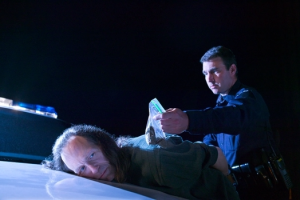Celebrating 20 Years of Criminal Defense in Sherman, TX (Part Six)
 So, in year 20, I will continue to do what I have always done and do my best to represent people accused of crimes in Grayson, Fannin and sometimes Cooke County. I had the opportunity to run for district attorney in one of our counties but could not bring myself to do so. I love helping people accused or investigated for crimes get to the best result possible, especially when that result is a changed life. Due to my family dynamics and education, I have more insight than most in my opinion to mental health and substance abuse issues, which is an overwhelming need in the criminal justice system. Even in a wrongful arrest case, I tell people to let the situation be a reason they change their life for the better. God never puts us through anything that isn’t designed to improve us instead of break us.
So, in year 20, I will continue to do what I have always done and do my best to represent people accused of crimes in Grayson, Fannin and sometimes Cooke County. I had the opportunity to run for district attorney in one of our counties but could not bring myself to do so. I love helping people accused or investigated for crimes get to the best result possible, especially when that result is a changed life. Due to my family dynamics and education, I have more insight than most in my opinion to mental health and substance abuse issues, which is an overwhelming need in the criminal justice system. Even in a wrongful arrest case, I tell people to let the situation be a reason they change their life for the better. God never puts us through anything that isn’t designed to improve us instead of break us.
So, I will continue to stay here at 711 N. Travis in Sherman, Texas, where my friend Jack McGowen always officed and taught me so much. Joey Fritts, my friend and companion in criminal defense for many years, is no long with us along with others that I have learned a lot from along the way. Don Bailey is still in the barn down the street on Willow where I learned so much federal law, and John Hunter Smith is in the Castle on Washington Street where he taught me a ton, along with at the courthouse, and where I used to go see Christmas lights as a young kid. Sherman is home and will always be home for my practice.
 Sherman & Plano, TX Criminal Defense Lawyer Blog
Sherman & Plano, TX Criminal Defense Lawyer Blog


 I eventually got really tired of the relapse levels of some of my clients and the reality of substance abuse and mental health populations in general, and starting using licensed chemical dependency counselors about seven years ago to help lower the recidivism rate and get people into treatment up front for better results and a changed life. I have always told clients to do what is in their long-term best interest, not just their short-term best interest. It is our job to do the math for them both short term and long term, and when a client is addicted to hard drugs such as methamphetamine, opiates or alcohol it can be a tough habit to break. We have really good treatment programs in Abilene at Concho Valley and the Bowie Women’s program, and some midlevel like SAFP that can make a big difference if a person self-invests. As the majority of substance abuse clients are self-medicating for undiagnosed or untreated mental illness, or some trauma, it’s very important to get the right counselor in there to help them understand not only their addiction but their triggers. I find it very rewarding when we can help people turn their lives around and see them at the grocery store or somewhere else in public a few years later a changed person. Addictions can be overcome, whether its substance abuse or other behaviors, but the work has to be put in.
I eventually got really tired of the relapse levels of some of my clients and the reality of substance abuse and mental health populations in general, and starting using licensed chemical dependency counselors about seven years ago to help lower the recidivism rate and get people into treatment up front for better results and a changed life. I have always told clients to do what is in their long-term best interest, not just their short-term best interest. It is our job to do the math for them both short term and long term, and when a client is addicted to hard drugs such as methamphetamine, opiates or alcohol it can be a tough habit to break. We have really good treatment programs in Abilene at Concho Valley and the Bowie Women’s program, and some midlevel like SAFP that can make a big difference if a person self-invests. As the majority of substance abuse clients are self-medicating for undiagnosed or untreated mental illness, or some trauma, it’s very important to get the right counselor in there to help them understand not only their addiction but their triggers. I find it very rewarding when we can help people turn their lives around and see them at the grocery store or somewhere else in public a few years later a changed person. Addictions can be overcome, whether its substance abuse or other behaviors, but the work has to be put in. I joined Texas Criminal Defense Lawyers association and attended every seminar I could, driving to Tyler, Corpus Christi, Huntsville for Criminal Trial College and even Laredo for a seminar. I eagerly wanted to learn how to protect my clients and learned the tools of the trade as fast as I could. This also helped me become board certified in the shortest time possible in 2010, with five years experience. I did a lot of administrative license review hearings for DWIs and it was easier to win them back then. There was a form on which I just had to request the arresting officer and breath tech supervisor, the latter who virtually never showed up for hearings because there is only one or two in the region and they handle the trials as well. I was proud to save a lot of drivers licenses. Texas eventually changed the law and we now have to subpoena the arresting officer and have to meet a virtually insurmountable burden to force the breath tech supervisor to appear beyond an affidavit. But, we have been winning close to half of the cases lately.
I joined Texas Criminal Defense Lawyers association and attended every seminar I could, driving to Tyler, Corpus Christi, Huntsville for Criminal Trial College and even Laredo for a seminar. I eagerly wanted to learn how to protect my clients and learned the tools of the trade as fast as I could. This also helped me become board certified in the shortest time possible in 2010, with five years experience. I did a lot of administrative license review hearings for DWIs and it was easier to win them back then. There was a form on which I just had to request the arresting officer and breath tech supervisor, the latter who virtually never showed up for hearings because there is only one or two in the region and they handle the trials as well. I was proud to save a lot of drivers licenses. Texas eventually changed the law and we now have to subpoena the arresting officer and have to meet a virtually insurmountable burden to force the breath tech supervisor to appear beyond an affidavit. But, we have been winning close to half of the cases lately. On November 5, 2025, I will have practiced law for twenty years. I started out in 2005 with a desk, phone and covering the hearings for a personal injury attorney in 2005 in Sherman, TX. The local judges had known me from interning for Sheriff Keith Gary, Judge Paul Brown, and District Attorney Joe Brown, so let me start with state jail felonies and third degree felony appointments rather than just misdemeanors. I mainly covered criminal and family law hearings for him while I built up my own practice through court appointments, referrals and advertising on the internet and otherwise. I even bought matches and coasters with my information and placed them at the local bars and bar/restaurant scene in Grayson and Cooke county. I sent direct mails to DWI arrests in Grayson and Fannin county, encouraging them to come in before their drivers license was automatically suspended if they didn’t request the ALR hearing within 15 days. The only case I know for sure to have come from one of the matchbooks was an important felony aggravated assault case in Cooke County that ended up being my first jury trial win in 2006. My client had chased his ex up and down highway 82 in Gainesville to retrieve his daughter from her vehicle, as it was his day for custody and she was playing games. She happened to be friends with the police officers, who arrested him for aggravated assault when he backed his car into hers in the median. We got a misdemeanor fine only and no jail time from a very fair jury.
On November 5, 2025, I will have practiced law for twenty years. I started out in 2005 with a desk, phone and covering the hearings for a personal injury attorney in 2005 in Sherman, TX. The local judges had known me from interning for Sheriff Keith Gary, Judge Paul Brown, and District Attorney Joe Brown, so let me start with state jail felonies and third degree felony appointments rather than just misdemeanors. I mainly covered criminal and family law hearings for him while I built up my own practice through court appointments, referrals and advertising on the internet and otherwise. I even bought matches and coasters with my information and placed them at the local bars and bar/restaurant scene in Grayson and Cooke county. I sent direct mails to DWI arrests in Grayson and Fannin county, encouraging them to come in before their drivers license was automatically suspended if they didn’t request the ALR hearing within 15 days. The only case I know for sure to have come from one of the matchbooks was an important felony aggravated assault case in Cooke County that ended up being my first jury trial win in 2006. My client had chased his ex up and down highway 82 in Gainesville to retrieve his daughter from her vehicle, as it was his day for custody and she was playing games. She happened to be friends with the police officers, who arrested him for aggravated assault when he backed his car into hers in the median. We got a misdemeanor fine only and no jail time from a very fair jury. A Defendant formally accused of violating probation also has the right to a speedy revocation hearing. In addition to statutory provisions addressing timeliness in motions to revoke, the Court of Criminal Appeals has historically recognized two sources of law which provide for the right to a speedy revocation hearing: (1) the statutory and former common law doctrine of due diligence, and (2) Constitutional speedy hearing rights under Barker v. Wingo. 407 U.S. 514 (1971). of due diligence has been superseded by statute in Article 42A.751(d).
A Defendant formally accused of violating probation also has the right to a speedy revocation hearing. In addition to statutory provisions addressing timeliness in motions to revoke, the Court of Criminal Appeals has historically recognized two sources of law which provide for the right to a speedy revocation hearing: (1) the statutory and former common law doctrine of due diligence, and (2) Constitutional speedy hearing rights under Barker v. Wingo. 407 U.S. 514 (1971). of due diligence has been superseded by statute in Article 42A.751(d). The reasons for the delay of a trial are important under the second prong, and the State will be required to put forward their reasons at a dismissal hearing. Right now, blood and drug results from the State laboratory are taking six months or so to process. A person sitting in jail on a misdemeanor is heavily prejudiced by waiting that long on a chemical result. A person awaiting felony trial is not as prejudiced per the caselaw, but after nine months or so prejudice can sometimes be shown. A lawyer should consider filing a speedy trial motion in any trial that will be lengthily delayed by chemical testing, DNA testing or other factors under the State’s control.
The reasons for the delay of a trial are important under the second prong, and the State will be required to put forward their reasons at a dismissal hearing. Right now, blood and drug results from the State laboratory are taking six months or so to process. A person sitting in jail on a misdemeanor is heavily prejudiced by waiting that long on a chemical result. A person awaiting felony trial is not as prejudiced per the caselaw, but after nine months or so prejudice can sometimes be shown. A lawyer should consider filing a speedy trial motion in any trial that will be lengthily delayed by chemical testing, DNA testing or other factors under the State’s control. The Texas Court of Criminal Appeals analyzes both speedy trial and speedy revocation motion matters under the factors set forth by the United States Supreme Court in Barker v. Wingo, 407 U.S. 514 (1972). These factors include: (1) the length of the delay, (2) the reasons for the delay, (3) the defendant’s assertion of the right (to a speedy trial), and (4) the possible prejudice to the Defendant as a result of the delay. As applied to this case, the State cannot overcome the presumptive prejudice associated with a thirty eight month delay in executing the capias, a similar delay in hearing from the time of issuance, and at least three of four Barker factors weigh in favor of dismissal.
The Texas Court of Criminal Appeals analyzes both speedy trial and speedy revocation motion matters under the factors set forth by the United States Supreme Court in Barker v. Wingo, 407 U.S. 514 (1972). These factors include: (1) the length of the delay, (2) the reasons for the delay, (3) the defendant’s assertion of the right (to a speedy trial), and (4) the possible prejudice to the Defendant as a result of the delay. As applied to this case, the State cannot overcome the presumptive prejudice associated with a thirty eight month delay in executing the capias, a similar delay in hearing from the time of issuance, and at least three of four Barker factors weigh in favor of dismissal. Going back to the Constitution of the United States, American citizens are guaranteed a speedy and public trial. The public part is why a Court cannot bar you from entering to watch a trial unless you are a witness, but the speedy part has been developed over the years. I will concentrate on the State of Texas right to a Speedy Trial this week, which is overwhelmingly similar to the Federal Right but without a few federal specific statutes that can effect federal criminal cases. Additionally, citizens also have a right to a speedy hearing if the State of Texas files a motion to adjudicate or revoke probation, which is the procedure upon an alleged probation violation to impose sentence or modification.
Going back to the Constitution of the United States, American citizens are guaranteed a speedy and public trial. The public part is why a Court cannot bar you from entering to watch a trial unless you are a witness, but the speedy part has been developed over the years. I will concentrate on the State of Texas right to a Speedy Trial this week, which is overwhelmingly similar to the Federal Right but without a few federal specific statutes that can effect federal criminal cases. Additionally, citizens also have a right to a speedy hearing if the State of Texas files a motion to adjudicate or revoke probation, which is the procedure upon an alleged probation violation to impose sentence or modification.
